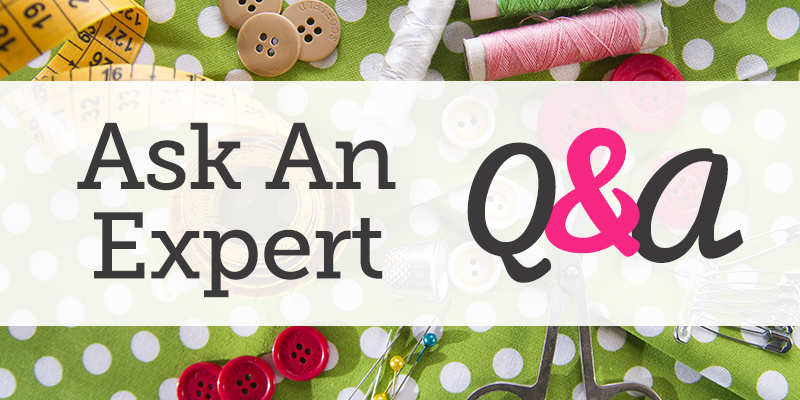This site uses cookies, web beacons, pixels, tags, and related technologies, as described in our
privacy policy and
cookie notice, for purposes that may include website operation, analytics, optimizing a user's experience, and third-party advertising or marketing purposes. These technologies may automatically collect and share with third parties information about your use of this site, such as when you access a webpage or complete a purchase on our site. By clicking "GOT IT", you understand and agree to our use of these technologies.






Hello! How do I make nice, neat joins when sewing on double-fold bias tape?
I have a large cutting mat that is warped and couldn't find a way to fix it. Now I do, and I thank everyone for their way to do it. Thanks you all, Thank you all!!!!!
This works! I've done it to an old, warped mat!
I do live in NM and had it happen to me. I took my mat out to the driveway and placed it on top of a poster board then put another poster board on top then put a large piece of metal sheeting on top. Within a couple of minutes my problem was fixed.
Need sewing tips
This is the information that I needed. Thank you. Chrissy Bennett
In regards to warped cutting mat, try heating using a hair dryer to soften then place something heavy on it very quickly. (May want to have an assistant so you can move quicker)
Reply about rescuing a warped cutting mat. Heat is the way to go. I have a friend who had a frame shop and she had a large mounting press that she used for posters and other related items. She used a lower heat, but put the mat in it and closed the lid (causing some pressure) and let it heat for awhile. When she opened the lid it was perfectly smooth and flat.
I have a cutting mat that has a crack in it. Is there anything I can do to fix it or help it? Thanks
Want to try flattening my cutting boards....?thanks for suggestions..Judy